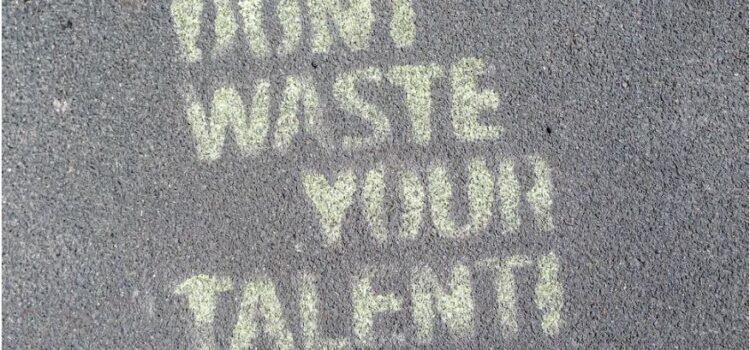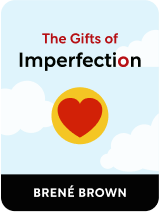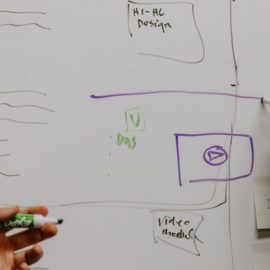

This article is an excerpt from the Shortform book guide to "The Gifts of Imperfection" by Brené Brown. Shortform has the world's best summaries and analyses of books you should be reading.
Like this article? Sign up for a free trial here .
How can you use your talents and gifts to their fullest? What if you can’t find a career that plays to your talents? What are the barriers that get in the way of using your talents?
In a society where prestige and money are valued, it can be tempting to choose a career that makes you look good rather than one that uses your talents and makes you happy. That’s why using your talents is the ninth guidepost for Wholehearted living.
Learn why using your talents will bring you more happiness than
Use Your Talents and Gifts
In The Gifts of Imperfection, the ninth guidepost for living Wholeheartedly is using your talents and gifts; specifically, sharing them with the world. The most obvious way of doing this is finding a career that enables you to use your gifts and talents every working day.
Many of us are in jobs that don’t make the most of our gifts and talents. Finding work that exactly matches your specific skillset can be tricky. However, Brown believes that doing so is worth the effort because failing to use your talents and gifts can seriously harm your emotional state. For example, you might start to believe that you’re not contributing your full potential to the world. This can cause feelings of worthlessness that are incompatible with Wholehearted living.
Meanwhile, using your talents and gifts has a range of benefits. First, it gives you a sense of purpose and meaning. You can focus your energy on finding work that puts your unique skills to good use. Second, if you’re spiritual or religious, you may feel closer to your higher power. You’re making the most of the gifts and talents that this higher power gave you and fulfilling the purpose that it decided for you.
Finally, each time you use your talents and gifts, you’ll be reminded that you’re good at something—that in this regard, you are enough (or even more than enough). This will increase your sense of worthiness.
Barriers to Using Your Talents and Gifts
As you try to put your gifts and talents to use, you may encounter the following three barriers:
- Self-doubt
- Harmful societal messages surrounding work
- Financial considerations
Self-Doubt
The first barrier you may encounter is self-doubt. You might believe that you don’t have any gifts and talents. Or, you might think that the gifts and talents you have aren’t “good enough” to use. For example, you might believe that you’re better than average at cooking, but not good enough to become a professional chef.
To overcome self-doubt, show yourself compassion. Remind yourself that it’s highly unlikely that you have absolutely no gifts or talents. Likewise, try to shift the mindset of “my talent or gift isn’t good enough.” It’s probably just low-self worth making you believe these things.
Even if your talent or gift isn’t yet strong enough to use professionally, that doesn’t mean you’re not “good enough”. You can turn your gift or talent into a career—you might just need a bit of practice or extra training first. For example, the talented cook may just need to undertake a bit more training before they can become a chef. That doesn’t nullify their talent; it just shows the person has room to grow.
Harmful Societal Messages Regarding Work
A second possible barrier to using your gifts and talents is harmful societal messages regarding work. Society may have taught you that money and prestige matter more than doing work that plays to your strengths.
To overcome this barrier, take time to question the validity of this societal message. Will following the message bring you happiness and worthiness? Considering it prioritizes fame and fortune over enjoyment, fulfillment, and being true to yourself, probably not.
Financial Issues
The final barrier you may face when trying to use your gifts and talents is financial issues. You may not be able to find well-paying work that uses your gifts and talents. This is true of many artistic talents—creative jobs often pay less. If you encounter this hurdle, you might be tempted to give up on finding work that plays to your strengths. What’s the point in continuing if you won’t be able to make enough money to survive?
To overcome this barrier, split your time between two types of work: work that pays the bills, and work that uses your gifts and talents. You’ll get the best of both worlds—money, and the satisfaction of playing to your strengths.
The Two-Job Identity Crisis
If you decide to split your time between two jobs, you may experience an identity crisis when someone asks you what you do for work. Do you tell them about the work that is unfulfilling but earns you money, or the work that pays less, but brings more meaning to your life?
For example, if your “day job” is selling houses but your enriching work is painting, are you an estate agent or an artist? The former option erases the part of your life that truly enriches you. However, the latter option may seem disingenuous: you don’t do this enriching work full time, after all.
To overcome this identity crisis, use the “slash” approach: Mention both types of work. To take the example above, call yourself an “estate agent-slash-artist.” Acknowledge both of your work identities equally, because they both play an important part in your life.

———End of Preview———
Like what you just read? Read the rest of the world's best book summary and analysis of Brené Brown's "The Gifts of Imperfection" at Shortform .
Here's what you'll find in our full The Gifts of Imperfection summary :
- How to stop feeling like you're not "good enough"
- How shame affects your self-worth
- The 10 guideposts to living Wholeheartedly and cultivating worthiness






